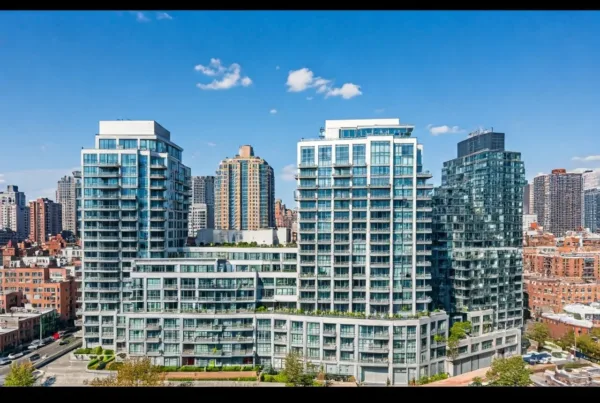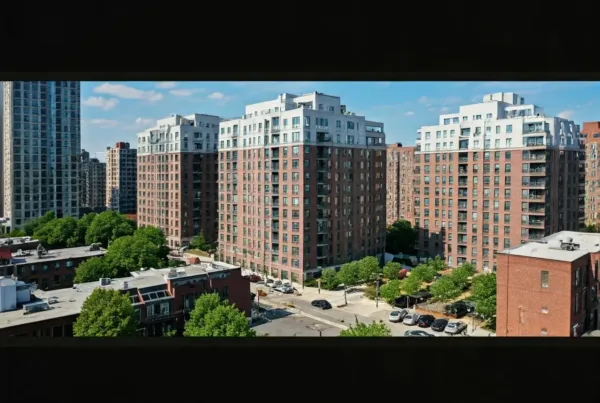Understanding sponsor units in New York City
Sponsor units in New York City are apartments that were originally built as part of a co-op or condo but are now being sold by the original sponsor. These units can offer buyers unique advantages, such as more lenient financial requirements and lower closing costs compared to standard units. Additionally, sponsor units are often sold in their current condition, allowing buyers to customize and renovate the space to their liking. It’s important to carefully review the terms of purchasing a sponsor unit, including any restrictions on financing or resale, to ensure a smooth buying process.
Benefits of buying a sponsor unit
Sponsor units might be cheaper than market-rate apartments, giving you a chance to snag a property at a lower price. Additionally, you can customize sponsor units to your liking, adding personal touches to make it truly your own. Lastly, purchasing a sponsor unit can allow for quicker closing times than buying a traditional apartment, making the process smoother and more efficient.
Finding sponsor units in NYC
Sponsor units in NYC are apartments in a building owned by the developer or sponsor. These units are often brand new and sold directly by the sponsor. When looking for sponsor units in NYC, you have the advantage of potentially getting a new apartment that no one has lived in before. You also have the opportunity to customize some aspects of the unit to your liking. Keep in mind that sponsor units can be found in both new developments and existing buildings undergoing conversion.
Eligibility criteria for purchasing a sponsor unit
Most sponsor units are available to buy by anyone, but sometimes restrictions apply. To be eligible to purchase a sponsor unit in New York City, you typically need to meet the following criteria:
- No income restrictions.
- Not own a primary residence in the building.
- Not work for the developer or have any conflict of interest.
- Be prepared to pay for any outstanding charges or fees related to the unit.
Financing options for sponsor units
When buying a sponsor unit in New York City, financing options are vital to consider. Many buyers opt for traditional mortgages from banks or financial institutions. Some may explore alternative financing like private lenders, seller financing, or loans specifically designed for sponsor units. It’s crucial to research and compare different financing options to find the best fit for your situation and budget. Understanding the terms, interest rates, and repayment schedule will help you make an informed decision and secure the necessary funding for your sponsor unit purchase.
Legal considerations when buying a sponsor unit
When buying a sponsor unit in New York City, it’s crucial to be aware of some legal considerations. Here are a few key points to keep in mind:
- Right of First Refusal: The sponsor or the cooperative board may have the right to match your offer before you can purchase the unit.
- Offering Plan: Review the offering plan that outlines the terms and conditions of the purchase, including any potential risks or liabilities.
- Resale Restrictions: Understand any restrictions on selling the unit in the future, as imposed by the sponsor or the building’s regulations.
- Maintenance Fees: Know the monthly maintenance fees associated with owning the unit, as they can significantly impact your overall costs.
Steps to successfully buy a sponsor unit
To successfully buy a sponsor unit in New York City, you need to follow a few key steps. First, ensure you have your finances in order and are pre-approved for a mortgage. Next, research different sponsor units available in the market and attend open houses to get a feel for the properties. Once you’ve found a unit you like, work with a real estate agent specialized in sponsor units to guide you through the purchasing process. Be prepared to negotiate the price and terms with the sponsor, and hire a real estate attorney to review the contract and handle the legal aspects of the transaction. Finally, close the deal by signing the contract and completing the necessary paperwork to officially become the owner of the sponsor unit.
Negotiating the purchase of a sponsor unit
Negotiating the purchase of a sponsor unit can provide you with an opportunity to secure a favorable deal. Understanding the process is essential to ensure you navigate it successfully. Here are some key points to keep in mind:
- Sponsor units are typically sold by the developer or the original owner of the building.
- You may have more flexibility in negotiating the price and terms compared to buying a regular unit.
- Conduct thorough research on the market and comparable sales to determine a fair offer.
- Consider hiring a real estate attorney to help you review the contract and negotiate on your behalf.
- Be prepared to present a strong offer that is attractive to the seller while also meeting your own needs and budget.
Inspecting a sponsor unit before buying
Before buying a sponsor unit in New York City, it’s crucial to inspect it thoroughly. Look for any signs of wear and tear, water damage, or structural issues. Make sure all amenities promised in the listing are actually present and in good condition. Check for any outstanding maintenance fees or legal issues related to the unit. Verify the ownership status of the unit and ensure all necessary paperwork is in order. Conducting a detailed inspection can help you make an informed decision and avoid any surprises after purchasing the unit.
Closing the deal on a sponsor unit
When purchasing a sponsor unit in New York City, the closing process is similar to buying any other property. Here are the essential steps to finalize your sponsor unit purchase:
- Review the Sales Contract: Carefully examine the sales contract provided by the sponsor, which outlines all terms and conditions of the sale.
- Secure Financing: Ensure you have your financing in place to cover the purchase price of the sponsor unit.
- Conduct Due Diligence: Conduct thorough research on the building, sponsor, and any associated risks or liabilities.
- Schedule Closing: Coordinate with all parties involved, including the sponsor, attorney, and lender, to schedule the closing date.
- Attend the Closing: On the scheduled closing date, sign all necessary paperwork, pay any remaining fees, and officially take ownership of the sponsor unit.
By following these steps, you can successfully close the deal on your sponsor unit purchase in New York City.






